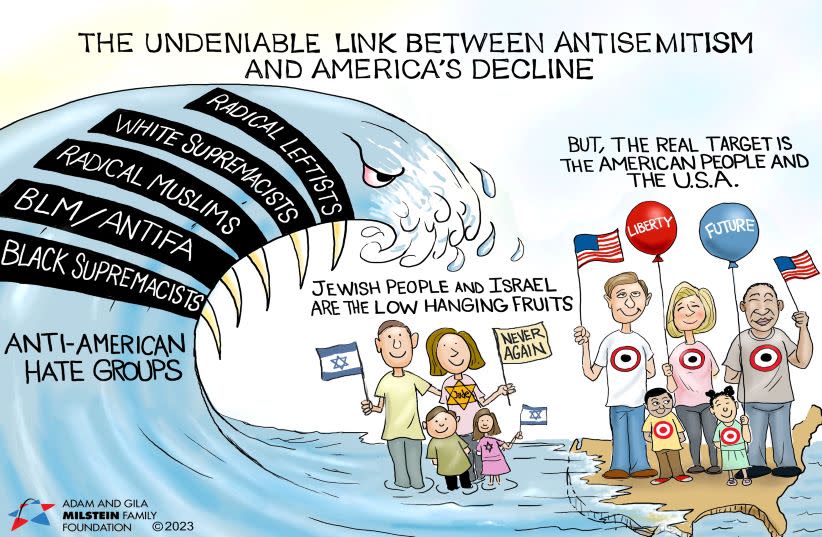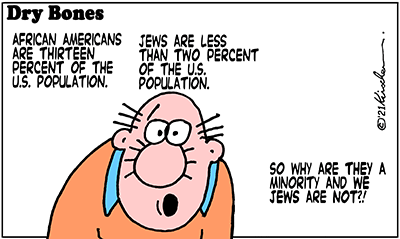I've had my
share of
disagreements with Batya Ungar-Sargon, most notably when she was Opinion Editor of The Forward. But she has been outspoken about the dangers of the current far-Left "woke" movement, and I've had some reasonable private discussions with her, so I bought her brand new book to see what she has to say.
Ungar-Sargon traces the history of modern journalism through the lens of the New York media world since the 1820s, noting the divide between the media that catered to the upper classes and the newspapers that were aimed at the working class, derided by the traditional media as "sensationalistic." She contrasts the New York World and the New York Sun with the founding of the New York Times, which was explicitly aimed at the rich. She shows that the NYT continues with that mission today, using even digital media to aim at the most wealthy people and those who aspire to join them. Local news and stories about ordinary working class Americans are given short shrift.
Ungar-Sargon demonstrates that while the news business was a trade, with most reporters not having attended college until five decades ago and in touch with the working people, now the journalists are nearly all from a small number of exclusive universities and are in the top tier of what is now known as privilege. Even though journalism pays very little for entry level jobs, the New York media world is filled with young people who could only afford to live in the city because of their wealthy parents who subsidize them. More recently, these privileged young journalists - who have remarkably little experience with actual, on the ground reporting and instead concentrate on doing their jobs using the Internet - have been pushing out the older, experienced journalists by canceling or threatening to cancel them. The result is a remarkably homogeneous, ultra liberal, mostly white class of know-nothings.
Batya brings much evidence that the current fashion of claiming that everything is centered on race is nonsense. Americans are less racist than at any time in our history yet the number of articles about race have skyrocketed. Intersectionality theory is equally shown to be nonsense - African women immigrants, who should according to that theory be on the very bottom of the heap, have no economic disadvantage when seeking employment in the US. She does a great job at taking apart the hypocrisy behind the NYT's treatment of the Tom Cotton op-ed and the aftermath.
Her argument falters when it intersects with her second theme, a more implicit one that pervades the book. This theme is that while the racial problems in the US are exaggerated, there is a serious class problem that is not being addressed, especially not by the media.
There are two kinds of people in the world: those who divide up everyone into two types of people and everyone else. Looking at the world as though everything is a class problem is just as simplistic as looking at everything through the lens of race. There are certainly class issues, but they don't explain everything, and Batya's class arguments are not convincing. While she demonstrates very well that journalists are overwhelmingly in the super liberal upper class, she does not show that the upper class itself buys into the woke narrative. In fact, she doesn't define what she means by upper class - her most consistent definition seems to be "college educated." What about Wall Street professionals - it seems unlikely that they buy into the woke/intersectional narrative even though they are clearly upper class (and college graduates.) The American middle class is treated as being effectively part of the upper class if they are "aspirational." But how many college-educated middle class Americans really want to be part of the rarified world of the New York Times Style section? And the huge middle class who live between the two coasts don't fit into her upper vs. working class worldview in this book at all.
As with race, this is not to say that there isn't a problem with the divide between the professional class and the working class, or with the working class not being represented by the media. The author shows that it is this very feeling of being disenfranchised that caused so many working class Americans of all races to vote for Donald Trump, who instinctively spoke to their concerns about keeping their jobs- and he even gained non-white voters in the 2020 election. (Ungar-Sargon somehow manages to say that the Republicans don't care about the working class after showing that Trump's policies were geared exactly to them.)
Because of her conviction that class is the defining feature of American life, one of Ungar-Sargon's core arguments does not hold up well. She claims that the young writers at the major newspapers support the idea of wokeness because they feel guilty about their white, upper class privilege, so they choose to focus on race because it is immutable - if the problem is one of race, then they don't have to examine their own privileged lives because they cannot solve the problem. There might be some truth to that, but it seems to me more likely that they learned this ideology in their universities and never questioned it as they moved from the college bubble to the media bubble.
If there was any consistent formula that Ungar-Sargon's data indicates, it is not the importance of class, but of money, power and influence. The reason that the New York Sun succeeded wasn't because of a principled coverage of the working class but because the larger market was lucrative. The reason Bernie Sanders flipped his stances on topics like immigration between 2016 and 2020 was because his desire to be elected was more important than his interest in consistency with his principles and agreeing with Trump was not a good look for a Democrat in 2020. The reason that the liberal media is obsessed over race stories is because they get ratings.
Bad News is an excellent book for members of the Left. If they have any intellectual honesty, it could convince them that their philosophy is not only wrong but a danger to democracy and the nation. For people who already know that critical race theory is ahistorical and wrong, this book gives more ammunition. There is plenty of interesting history and statistics (such as data that indicates that people on the Left are more racist than those on the Right) that make it a worthwhile read for anyone.

 Elder of Ziyon
Elder of Ziyon




























